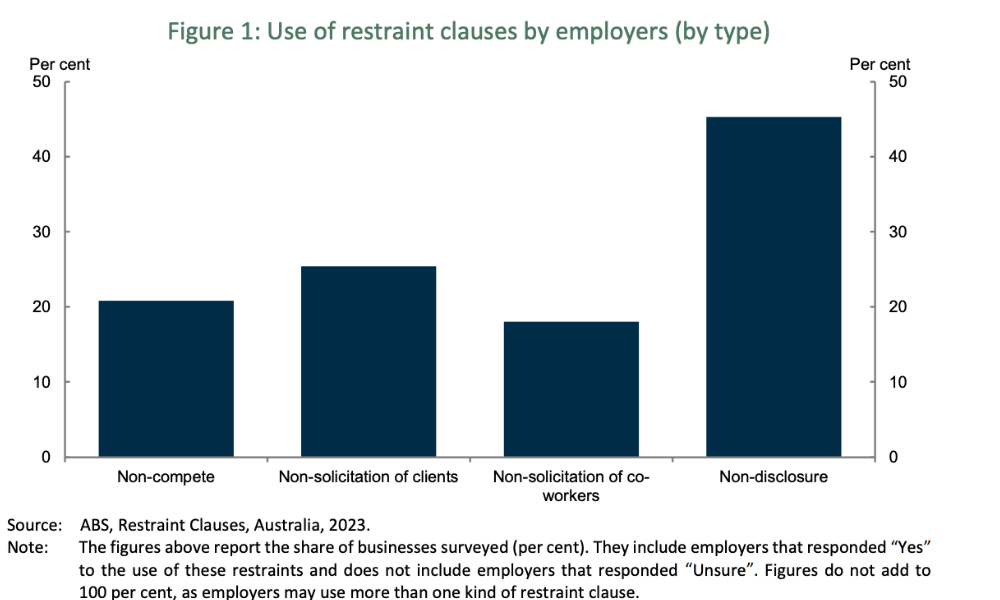
Nearly half of businesses using some kind of restraint clause

The Australian government is seeking public feedback on the use and impact of non-compete and related restraint clauses across workplaces.
An issues paper was published by the government on Thursday to seek information and views and to inform the Competition Review's consideration of such clauses.
Non-compete clauses are a type of restraint of trade clause that seeks to restrict workers from joining a competitor or establishing a competing business.
In Australia, 46.9% of businesses said they use some kind of restraint clause, which also covers employees in non-executive roles, according to the Australian Bureau of Statistics (ABS).
These include 20.8% of businesses who said they use non-compete clauses for some of their staff, with 68.2% saying they use them for more than 75% of their employees.

The issues paper, citing international evidence, said non-compete clauses are getting "increasingly prevalent" across workplaces.
"This evidence also suggests that despite benefiting some businesses, restraint of trade clauses are adversely impacting workers, other businesses, and broader economic outcomes — through reduced wages growth, job mobility, and access to skilled workers," the paper read.
In releasing the paper, the government underscored that it's important to strike a right balance to ensure that non-compete and related restraint clauses are not dragging competition, productivity, and wages.
"The government is therefore seeking feedback to determine whether reform may be needed in this area," the Treasury said in a statement.
"Stakeholders are encouraged to engage with the consultation process by making a submission. Businesses and workers with their own views and experiences on these clauses can also respond to a short questionnaire."
Submissions and responses to the questionnaire will close on May 31.
The consultation comes after the government announced in 2023 that the Competition Review would look into non-compete and related clauses in employment contracts.